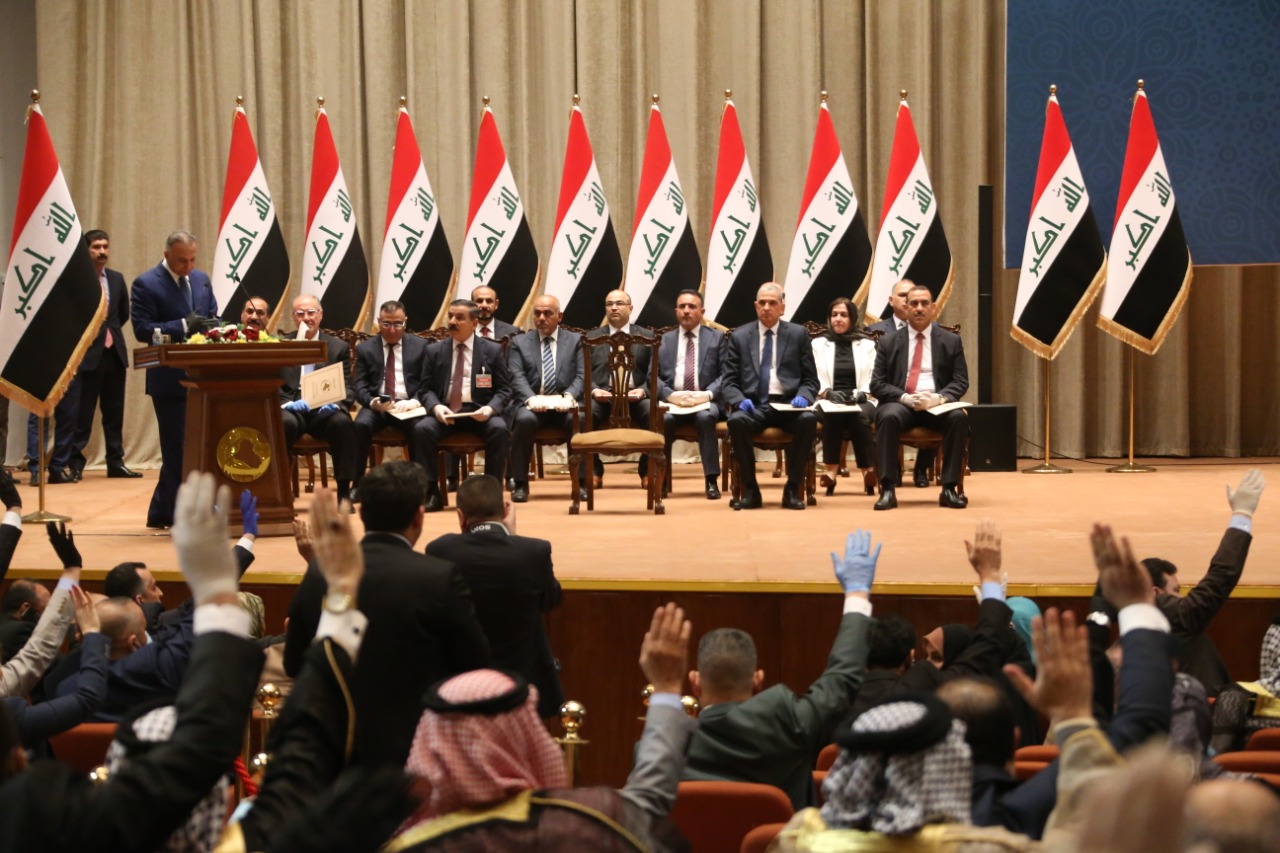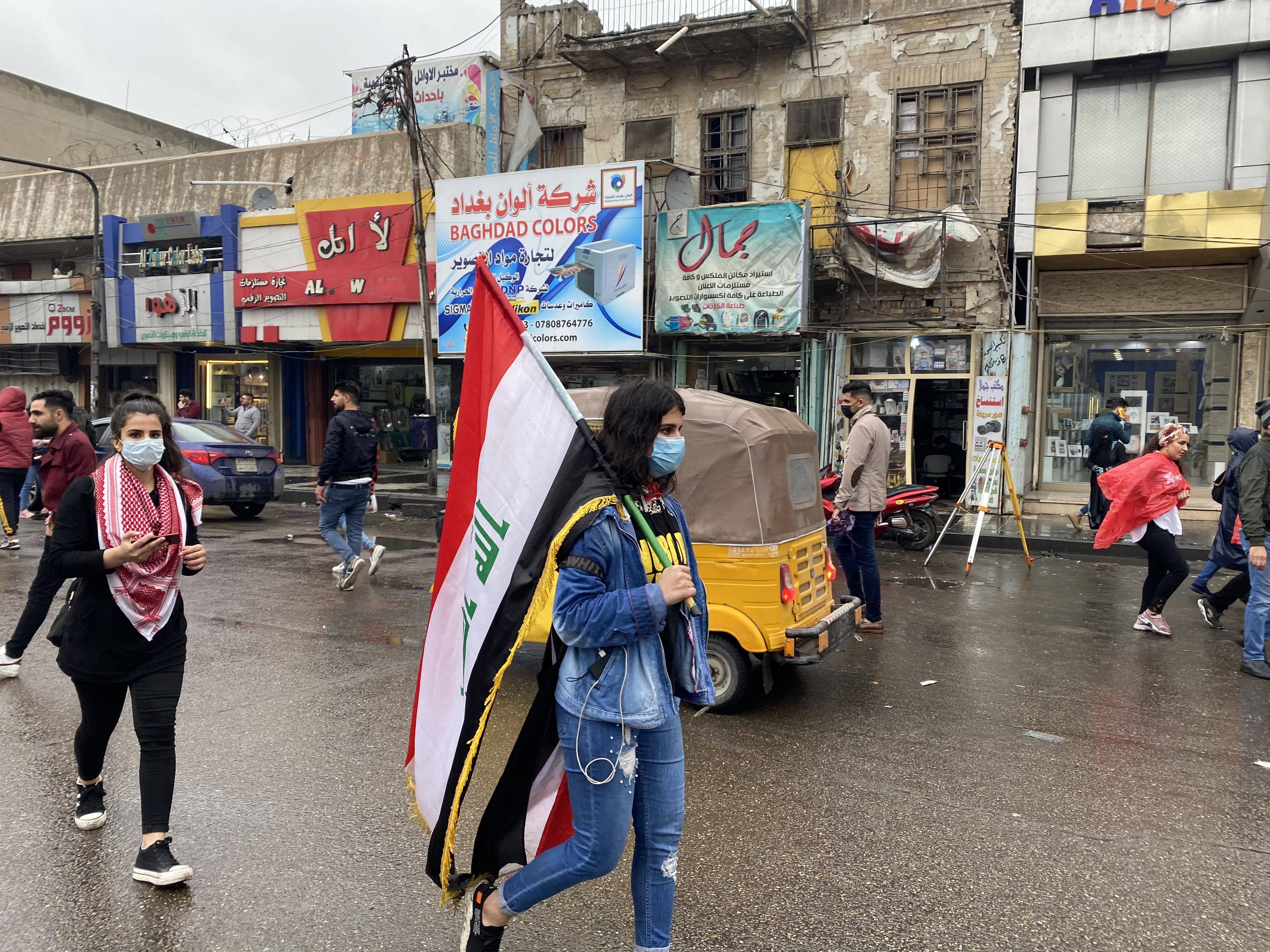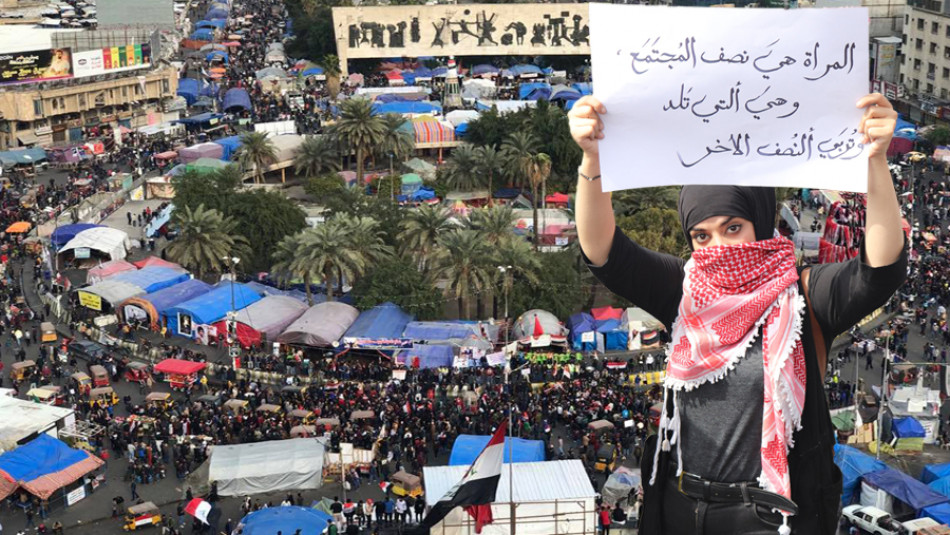The Iraqi politicians frequently insist on the fact that women are half of society and they internal regulations of their political parties allocate significant roles to women; however, the reality is opposite. The Iraqi women have been sidelined to the degree that they only hold one ministry in the new Iraqi government.
Only a woman was elected as a minister in the new Iraqi government, formed on May 6, 2020 and led by Mustafa al-Kadhimi, while women compose 25 per cent of the Iraqi Council of Representatives.
Article 20 of the Iraqi constitution, alongside men, provides women with “with the right to participate in public affairs and to enjoy political rights including the right to vote, elect, and run for office.”
Women; A minority in the government
The participation of women in the last successive Iraqi government since 2003 has been on a gradual decline.
The first woman minister was Nasreen Barwari, who was the minister for Municipalities and Public Works in the Coalition Provisional Authority established after the removal of the former Baathist regime in 2003.

Baghdad, parliament members are voting on the cabinet of Mustafa al-Kadhimi, which only has a woman minister, May 2020. Photo: Media Office of Parliament
Later, the interim government, from 2004 to 2005 and headed by Ayad Allawi, had six women ministers, which was the highest rate of women participation in the Iraq government ever since 2003.
The number of women ministers dropped to five in the transitional government of Ibrahim al-Jaafari, that only administered the country from 2005 to 2006.
The first elected Iraqi government led by Nouri al- Maliki was formed in 2006, in which women occupied three ministries. Moreover, when a new government was formed in 2010, women ministers decreased to two.
Women kept occupying two ministries in the Haider al- Abadi’s government formed in 2014, however, the ministry of state, held by a woman, was dissolved. Later in 2016, another ministry provided to a woman.
Adil Abdul-Mahdi’s government formed in 2018 initially did not have any woman minister, but a woman became the minister of education. Abdul Mahdi resigned after a year in office as social uprisings started in October 2019.
The newly formed Iraqi government, headed by Mustafa al- Kadhimi, achieved parliament confidence on May 6, 2020 for 15 ministries out of 22, among the 15 ministers, there is only a woman.
Quota System: the rescuer of women
The quota seats of women in the Iraqi Council of Representatives have been guaranteed in accordance to the constitution. Sometimes, women secure more seats than the number of seats allocated to them.
From 1925 to 1980, women did not have the rights to become a parliament member. Since 1980, they have been able to exercise their rights to take part in legislation and the national committee.
Women have been allocated 25 percent of the parliament seats after the removal of the former Iraqi Baathist regime in 2003. The quota system guarantees at least 25 seats, meaning that women are able to win more seats.
70 women became parliament members (MPs) out of the 270 members in the first term of the Iraqi Council of Representatives in 2005.
The number of women MPs increased to 83 out of 325 in the 2010 federal parliamentary elections.
The Iraqi parliamentary seats increased to 329 in the 2014 federal elections, in which 83 women became MPs, among whom 22 women secured enough votes to secure a seat without the quota system.
In the last federal elations held in 2018, 84 women secured their seats in the parliament.
Concerned Women Demand More Roles
Women activists and protestors call for the inclusion of women in the government based on merits and qualifications, not only through the quota system, providing them with a vulnerable position.
Lamya al-Amdi, an activist and protestor in the recent social uprisings, believe that the quota seats weaken the role of women because women have proved their leadership in any position they have held and do not need such a system.

Baghdad, a woman protestors waves Iraqi flag, 2020. Photo: KirkukNow
“Women do not need the quota seats, but rather need spreading awareness in the society to change the perception towards them. There is a situation that even women do not vote for women candidates, this is a big problem,” al-Amdi told KirkukNow.
She thinks that, “the participation of women in the political process is a weak participation, and head of the parliamentary blocs and parties mobilize them.”
300 women protestors daily participated in the social protests in Baghdad since the spark of the protests in October 2019, demonstrating against rampant corruption, social injustice, and the lack of service delivery and jobs as well as calling for the empowerment of women.
“Strong and qualified women should be nominated for the positions, not women who take order as remote control… we see men are nominated for a position for which they are not qualified, while there are women who can successfully lead the position,” al-Amdi claimed.
Strong and qualified women should be nominated for the positions
Al-Amdi called on the women organizations to raise their voices and reject their marginalization. “not giving the high governmental positions to women is a catastrophe and is a dangerous sign in the political process, we should not stay silent.”
The incentive to lead
Several women politicians believe that women should not only attempt to become MPs or ministers but rather also try to secure presidencies positions.
Mhasn Hamdun, an MP of the Iraqi parliament, said that, “women do not merely strive to become general directors or ministers, but also compete to win the three presidencies positions, speaker of parliament, prime minister, and president of Iraq, even though the destiny of such goals is far away.”
Women do not merely strive to become general directors or ministers, but also compete to win the three presidencies positions
Women contribute least to the negotiations of the government formations as there is no law obliging the parties or blocs to involve women or to allocate certain positions of the government to them.
“Honestly, women have not been able to play the roles they should have played. Women rights have been violated and they have been oppressed in Iraq.”
Hamdun criticizes the male politicians for the patriarchal mindset, “which has shaped the policies of the political parties, that dominate all the positions, from the ministries to a simple office.”
She says women are not the one to blame, adding that they demanded their rights and “raise their voices, but, unfortunately, male’s voices are heard more in politics.”
Unfortunately, male’s voices are heard more in politics
Women are still optimistic
Numerous women MPs hope that their parties will revise and reconsider their policies in a way that would provide more spaces to them to play more important roles.
“We hope that the parties will reconsider their policies and we wait for more openness of the society. See, the speaker of parliament in the Kurdistan Region is a woman” Ikhlas Dlimi, an Iraqi MP said.
The speaker of Iraqi Kurdistan’s parliament and her second deputy are women as well as numerous ministries of the region’s government have been held by women.
Dlimi told KirkukNow that, “women are more serious about taking their responsibilities, but they are sidelined, while they should have been respected more though providing them with more positions.”
Kirkuk, women are gathering on the International Women’s Day, March 8, 2020. Photo: Soran Mohammed
She further explained that despite their significant participations in legislation, their role in the government is decreasing.
The parties only see men, do not create opportunities for women, and consider them as vulnerable
“The decreasing role of women is concerning, women are even neglected to that degree by people,” Dlimi said, “the parties only see men, do not create opportunities for women, and consider them as vulnerable.”
What gravely concerns Dlimi is that many male politicians still consider the inclusion of women, not only in politics, but also in any public affairs as a shame





